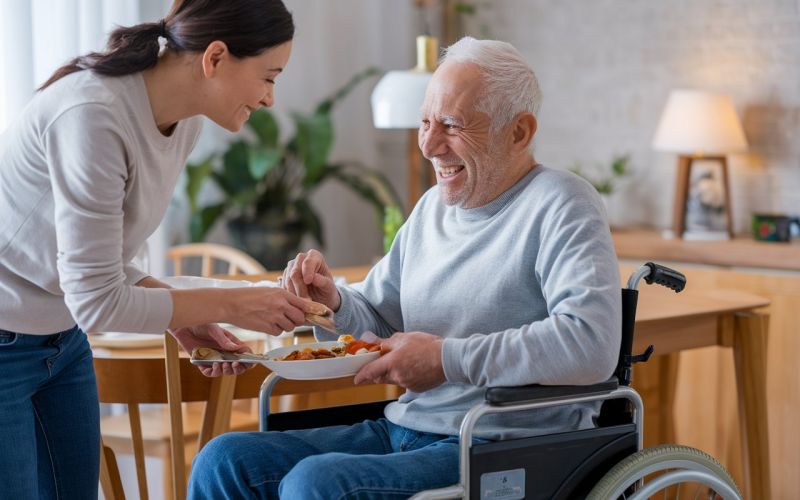How to Provide End-of-Life Care and Support for Elderly Patients and Their Families
iSavta | 28.01.2024

Providing compassionate and comprehensive end-of-life care for elderly patients is crucial for ensuring their comfort, dignity, and peace during their final stages of life. It is a challenging but essential responsibility that requires a multidimensional approach, involving medical, emotional, and spiritual support. In this article, we will explore key strategies and practices to provide end-of-life care and support for elderly patients and their families.
Open and Honest Communication:
Effective communication is the cornerstone of providing quality end-of-life care. It is essential to engage in open and honest conversations with the patient and their family, discussing their wishes, goals, and expectations. Encourage them to express their concerns, fears, and hopes, and listen attentively to their needs. Such communication helps foster trust, understanding, and collaboration, ensuring that decisions regarding medical treatments, pain management, and care options are aligned with the patient's preferences.
Advance Care Planning:
Encouraging elderly patients and their families to engage in advance care planning can greatly improve the end-of-life experience. This involves discussing and documenting preferences for medical interventions, resuscitation, and the use of life-sustaining treatments. Advance directives such as living wills and healthcare proxies empower patients to have a voice in their care even when they are no longer able to communicate their wishes. Encourage regular discussions to ensure the plans are updated and accurately reflect the patient's evolving preferences.
Pain and Symptom Management:
Ensuring the comfort of elderly patients through effective pain and symptom management is paramount. Work closely with the patient's healthcare team to develop an individualized care plan that addresses their specific needs. Regular assessments of pain, discomfort, and other symptoms should be conducted, and appropriate medications and therapies administered. Emotional support, such as counseling or complementary therapies like music or art therapy, can also contribute to enhancing the patient's overall well-being.
Emotional and Psychological Support:
End-of-life care encompasses not only physical well-being but also emotional and psychological support for both patients and their families. Provide a compassionate and empathetic environment where patients feel safe to express their emotions. Offer counseling services, support groups, or access to mental health professionals to help patients and their loved ones navigate the challenges and grief associated with end-of-life care. Encourage open dialogue and create spaces for reminiscing, storytelling, and sharing memories to promote emotional healing and closure.
Hospice and Palliative Care:
Hospice and palliative care play a vital role in providing comprehensive end-of-life support. Hospice care focuses on improving the quality of life for patients with terminal illnesses, typically when curative treatments are no longer viable. Palliative care, on the other hand, aims to alleviate suffering at any stage of a serious illness. Both approaches provide specialized medical, emotional, and spiritual care tailored to the patient's specific needs, while also extending support to the family. Collaborate with hospice and palliative care teams to ensure a seamless transition and continuity of care.
Spiritual and Cultural Considerations:
Recognize and respect the diverse spiritual and cultural beliefs of elderly patients and their families. Offer access to spiritual care providers or chaplains who can provide guidance, comfort, and religious or cultural rituals as per the patient's preferences. Understanding and honoring these beliefs help create a supportive environment that acknowledges the unique needs of the individual and their family.
Conclusion:
Providing end-of-life care and support for elderly patients and their families requires a compassionate and holistic approach. By fostering open communication, encouraging advance care planning, managing pain and symptoms effectively, providing emotional support, collaborating with hospice and palliative care teams, and respecting spiritual and cultural considerations, healthcare professionals can ensure a dignified and comfortable end-of-life experience. It is our collective responsibility to uphold the value of life until its very end and to provide the necessary support to those navigating this challenging journey.












